The Lectures & Talks bring together people from the worlds of art, technology and society to share ideas and perspectives. The aim is to gain a better understanding of digital change and get new impetus. Participants can deepen their knowledge, acquire exciting insights and exchange ideas with experts.
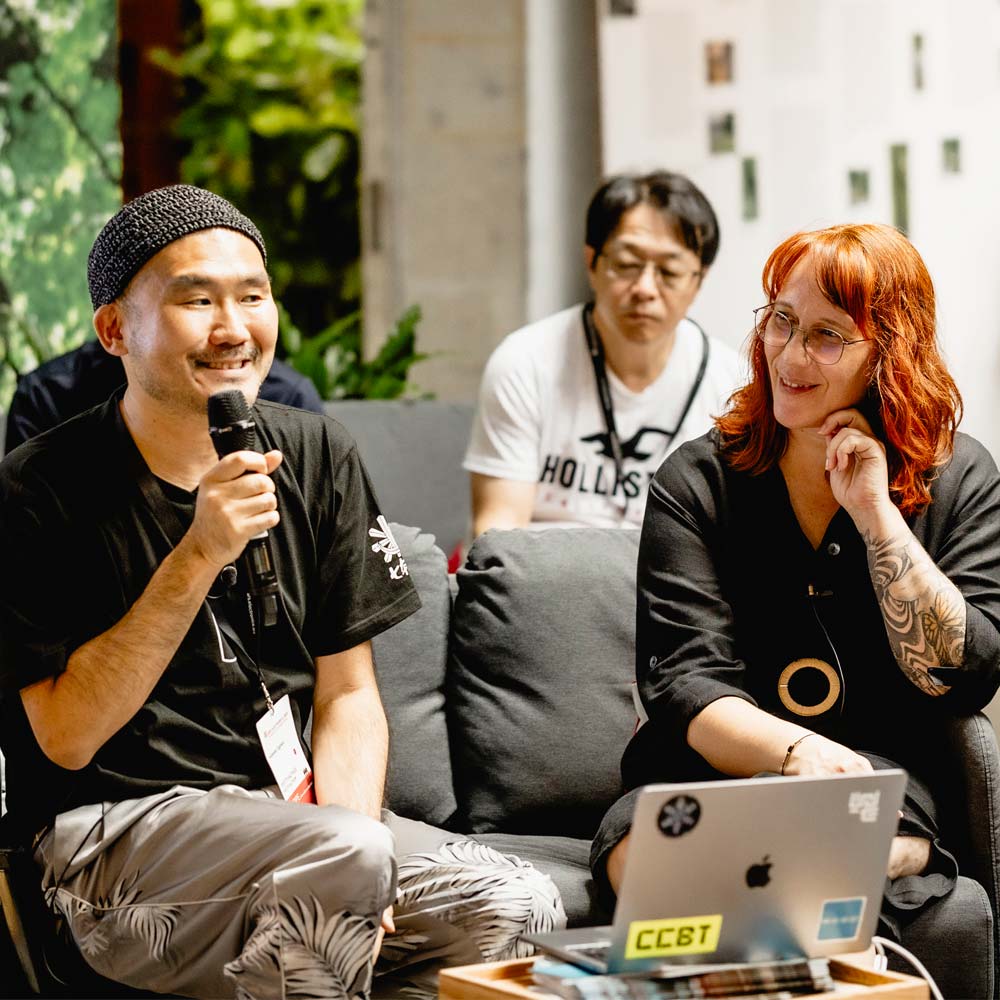
Lectures & Talks - Photo: Bettina Gangl
Collection
Lectures & Talks
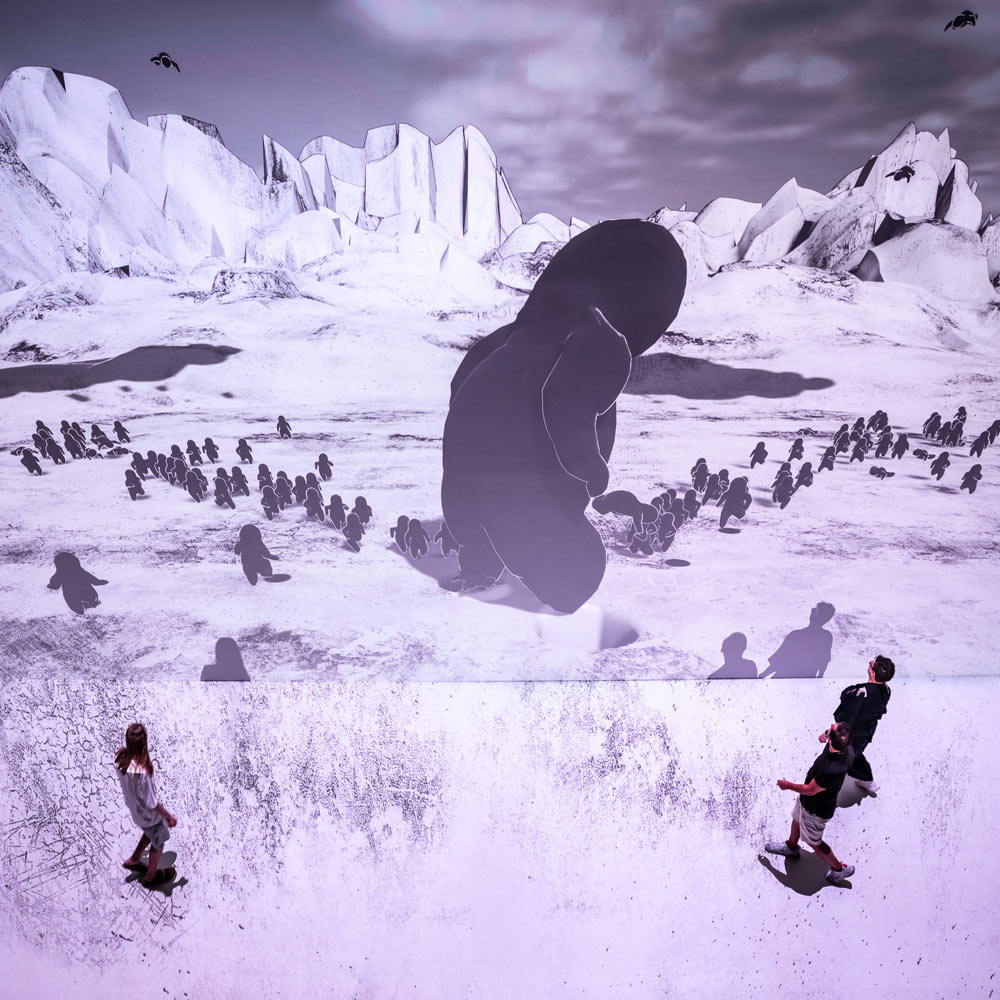
Artistic Exploration of XR Shared Hybrid Spaces
Patrick Berger (AT), Leon Butler (IE), Susanne Kiesenhofer (AT), Peter Power (IE), Anna Weiss (DE/AT), Cyntha Wieringa (NL)
This panel discussion brings together artists who have collaborated within the EU XR project SHARESPACE. Each of them has developed projects exploring collaboration between humans and avatars in shared hybrid spaces. The conversation will center on XR art and the artistic concepts behind their work.
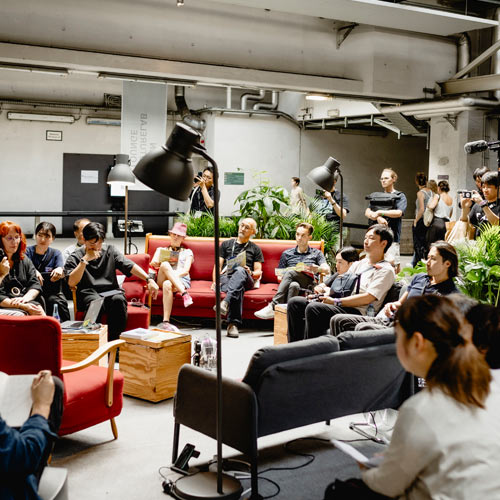
Co-Creating Key Transformation Indicators
Kathleen Bryson (GB), Ken Moriyma (JP), Maria Pfeifer (AT), Maro Pebo (MX), Hiroaki Tanaka (JP)
Rooted in the Future Impact Creation Framework and real-world experience, this session invites audiences into the messy, visionary process of experimental collaboration. What kind of impact do we want to create—and how do we know it’s happening?
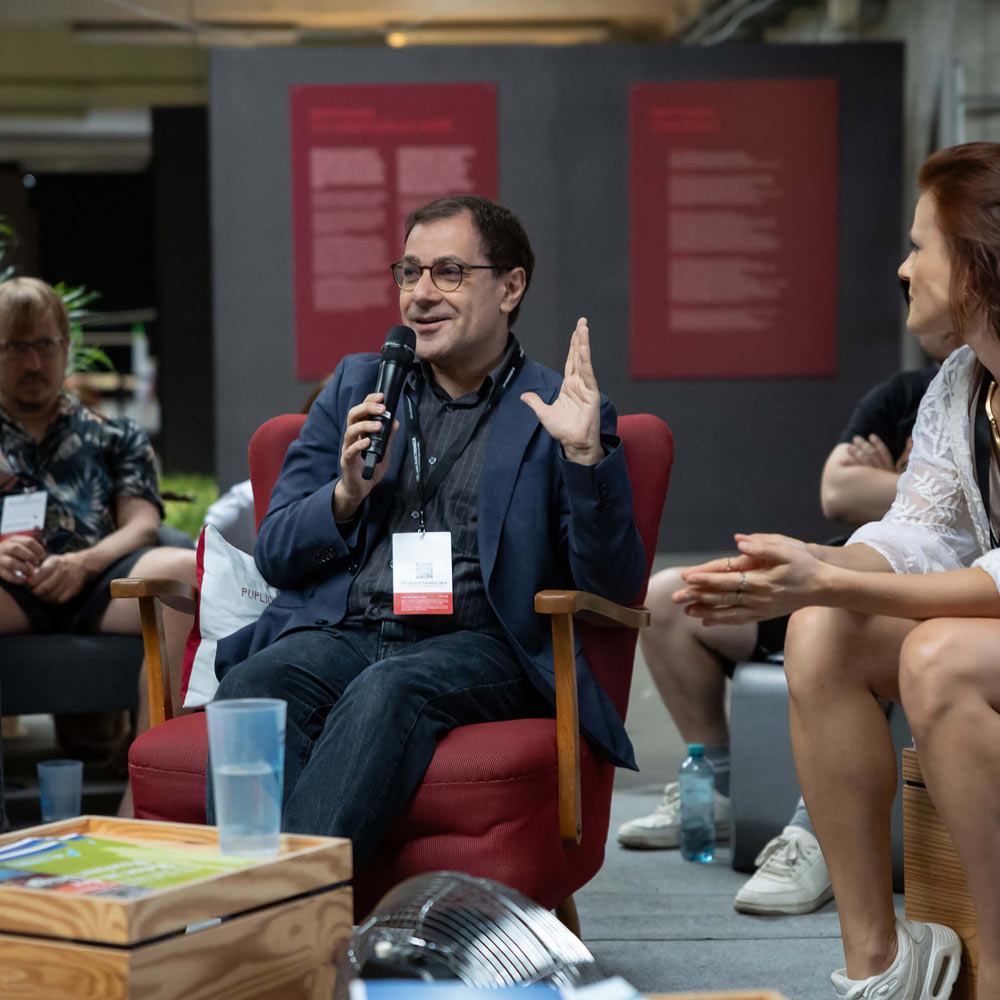
Co-Creating Music with AI
Ali Nikrang (AT), Susanne Kiesenhofer (AT)
How do artists engage creatively with AI? How does working with AI reshape artistic collaboration? This panel dives into the creative process behind Walzersymphonie, an artistic research project in which composition students created original musical works in collaboration with a musical AI system.

Crafting Futures Lab – Crafting Futures Conversation with Karin Altmann
Karin Altmann (AT), Julia Moser(AT)
A conversation exploring the enduring legacy and evolving innovation of textile heritage and material knowledge, envisioning the future of craft, the craft of the future, and the crafting of futures.

Crafting Futures Lab – Crafting Futures Conversation with Katharina Sand
Katharina Sand (DE/CH), Julia Moser (AT)
A conversation about the crafting of pasts and futures, the crafting of the commons, and libraries as a living practice.

Critical Data Research Group: PhD presentations
Alexia Achilleos (CY), César Escudero Andaluz (ES), Marta Beauchamp (IT/UK), Juliane Götz (DE), Hess Jeon (KR/AT), Yann Patrick Martins (CH),and in collaboration with SKKU (KR), Fernando Velázquez (UR/BR) and Julia Kloiber (AT/DE).
With project presentations from BIP ERASMUS+, poster presentations from CDRG, and special guest talks from SKKU, Fernando Velázquez, and Julia Kloiber
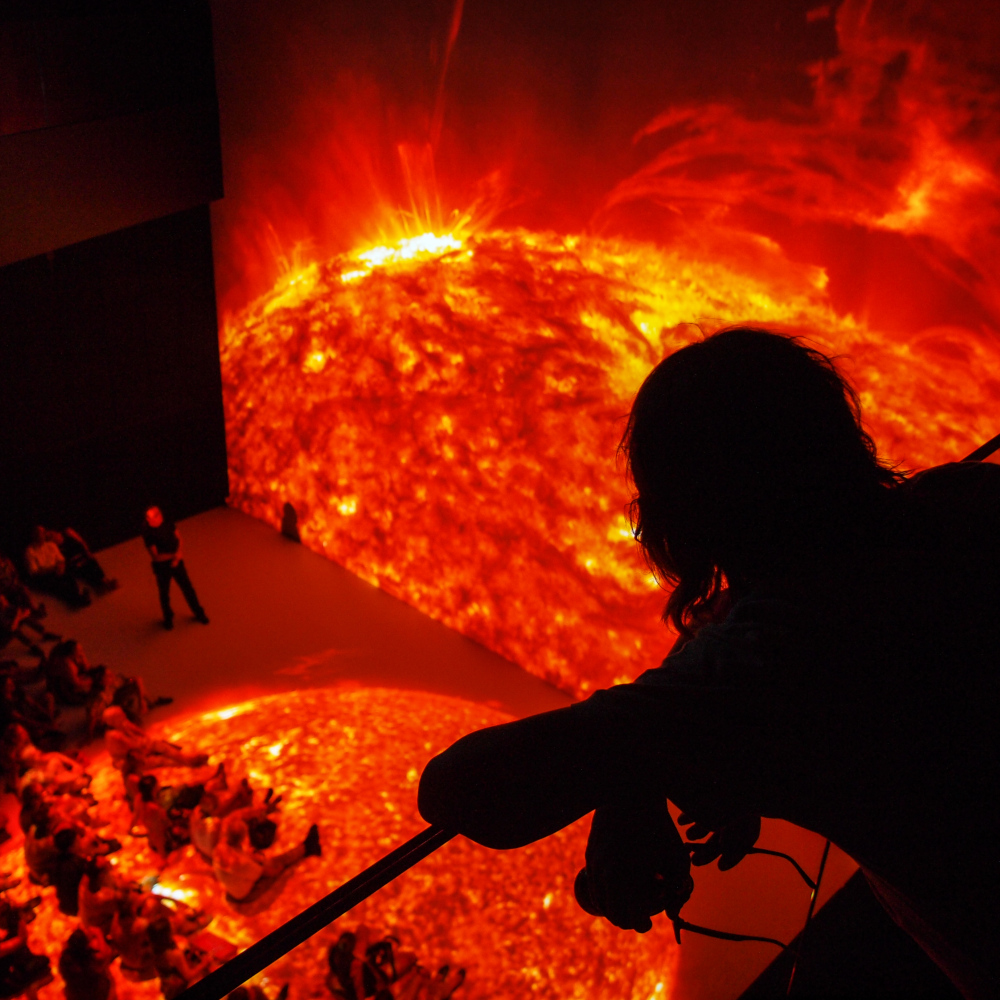
Deep Space in Dialog
Melinda File (AT), Roland Haring (AT), Christoph Kremer (AT), Michael Mondria (AT), Daniel Rammer (AT), Kati Romics (HU), Anna Weiss (DE/AT)
Deep Space by Ars Electronica is an immersive space for unique experiences around the world—including artistic performances, games, research findings, point cloud and 3D models, gigapixel images, and more. This event invites you to get to know Ars Electronica Center, Solutions, and Futurelab behind Deep Space.

Digital Shadows—Who owns your data?
Ilona Roth (AT/DE), René Mayrhofer (AT), Cornelia Lehner (AT)
Digital identities follow us like shadows—often unnoticed, yet always present. Who owns them? Who controls these digital traces? Ilona Roth and René Mayrhofer examine how the interplay between the digital and physical worlds shapes our society, from artistic and scientific viewpoints.
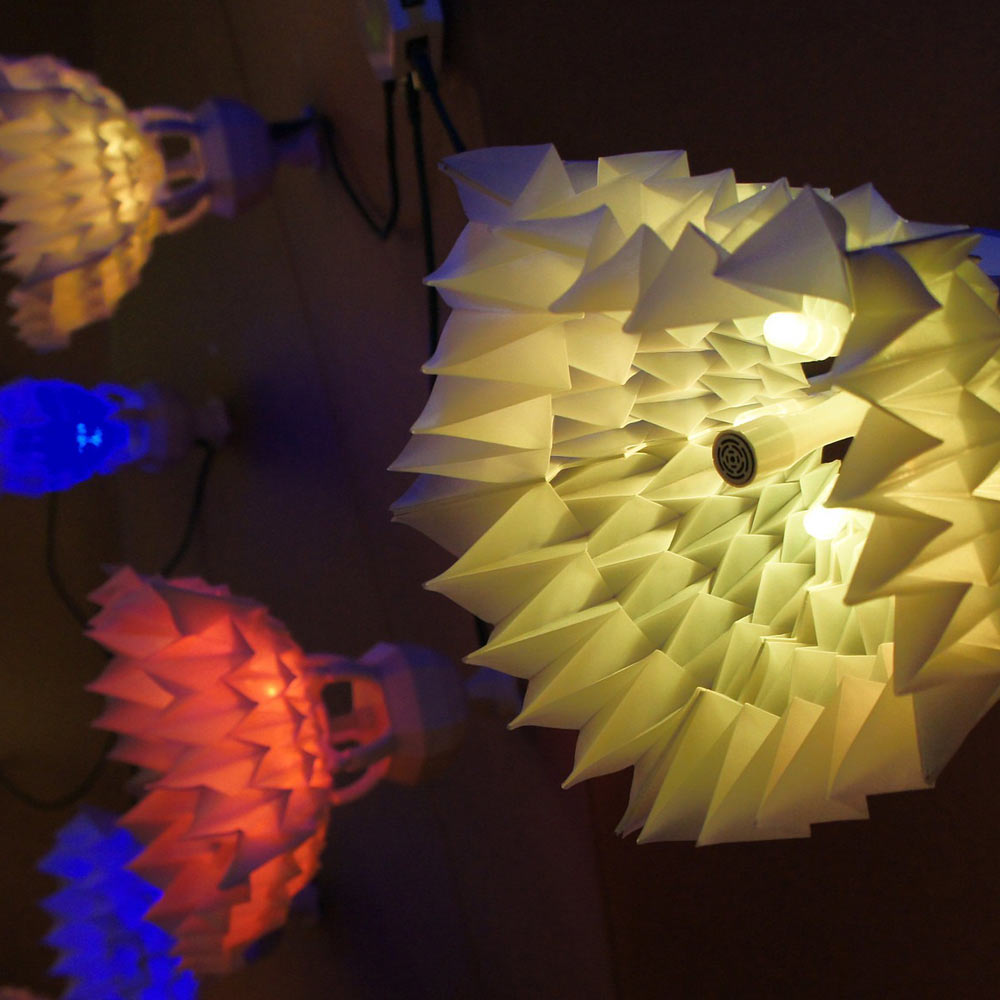
Future of Art Science Research
Asako Tomura (JP), Matthew Gardiner (AT/AU), Yasuaki Kakehi (JP), Yitong Tseo (US), Victoria Vesna (US)
A question-led reflection on the future of Art Science, an emergent term slicing through the blurry intersection connecting creativity and questions, its researchers and their research.
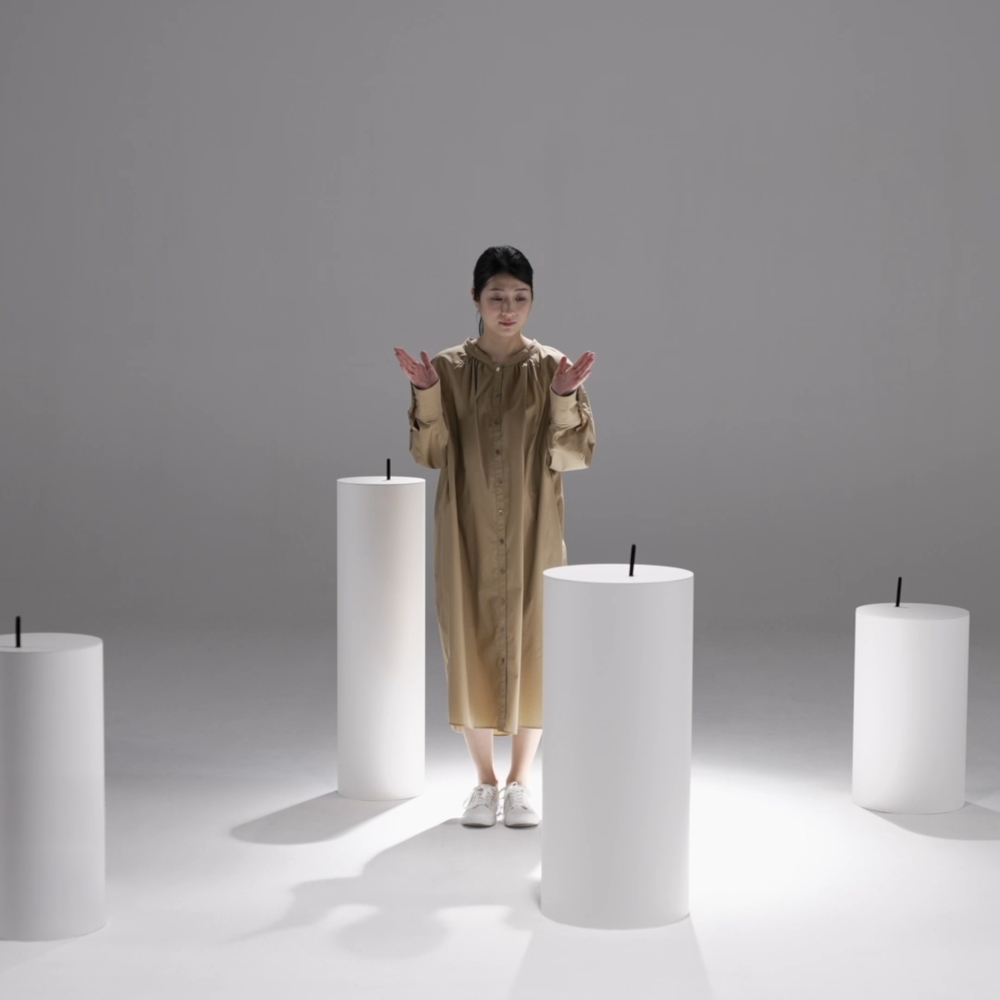
Future Humanity: Open Research Talk I
Etsuko Ichihara (JP), Noemi Iglesias Barrios (ES), Takuma Suzuki (JP), Nicolas Naveau (FR/AT)
This panel discussion explores creative questions about Future Humanity with experts and invites visitors into the process of ongoing research.

Future Humanity: Open Research Talk II
Airí Dordas Perpinyà (ES), Jiabao Li (CN), Misako Kawata (JP), Takashi Nishimura (JP), Kyoko Kunoh (JP)
This panel discussion explores creative questions about Future Humanity with experts and invites visitors into the process of ongoing research.
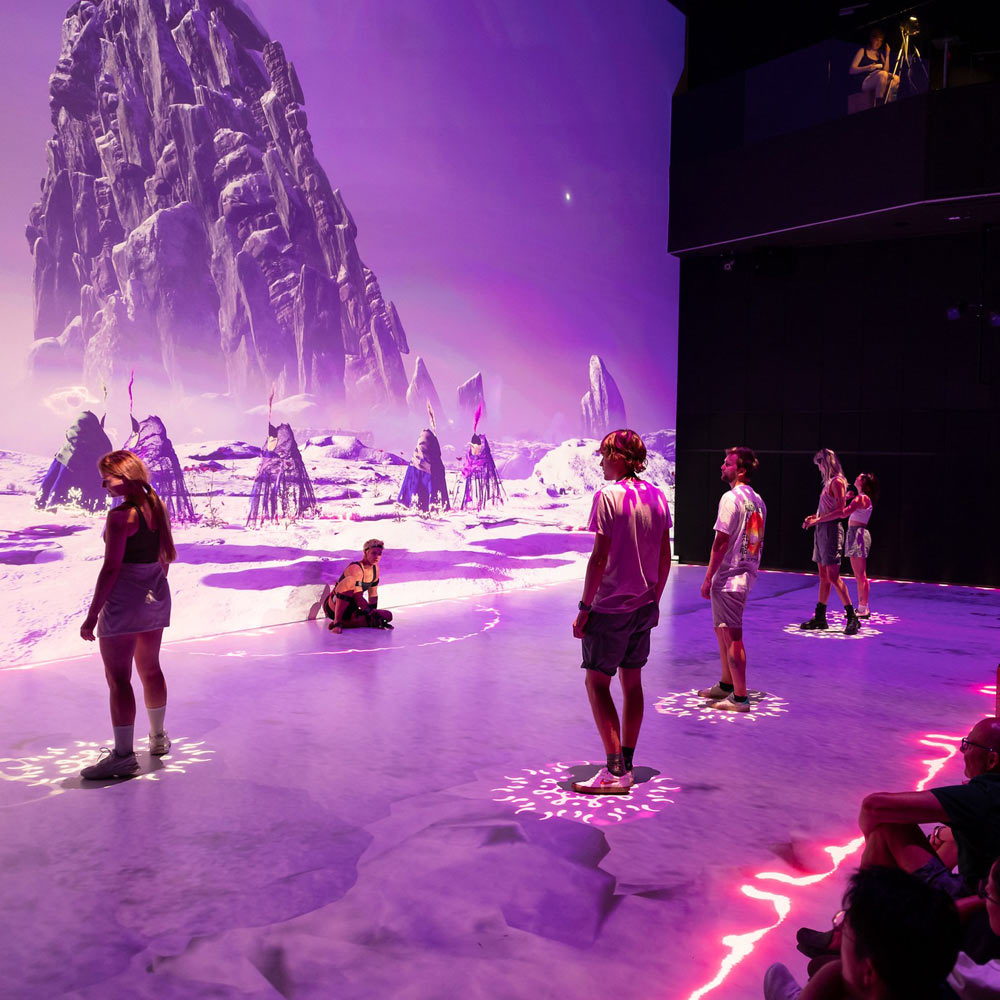
Good Enough Ethics in XR Shared Spaces
Kathleen Richardson (GB), Kathleen Bryson (GB)
Explore the latest results from our Good Enough Ethics (GEE) study, where SHARESPACE researchers tackle real-world AI and XR dilemmas using GEE values that are critical of ethical perfectionism. GEE is an new approach for ethical reasoning and emotional responsibility in emerging technology.
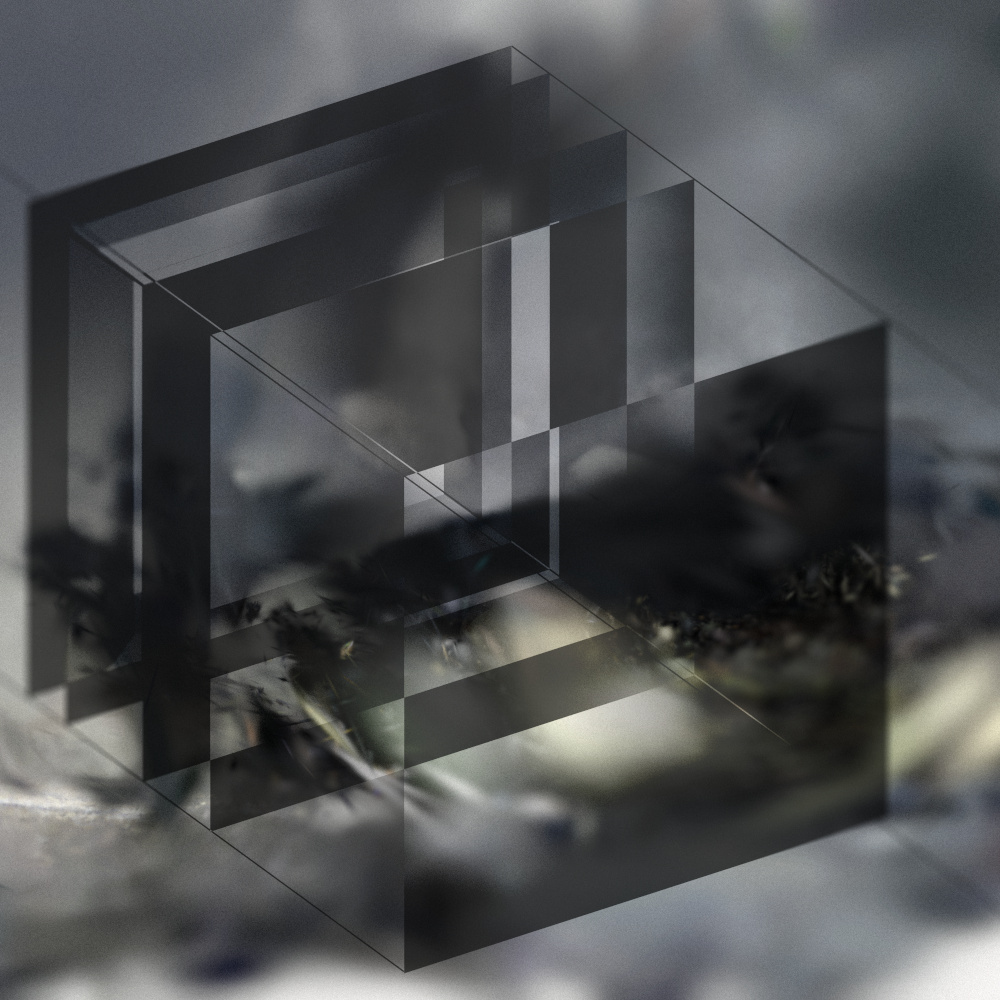
Inside Futurelab: Overlapping Realities of Machines | Humans | Birds
Lisa Canaval (AT), Peter Holzkorn (AT), Horst Hörtner (AT), Johannes Pöll (AT), Raphael Schaumburg-Lippe (AT), Anna Weiss (DE/AT)
The winners of this year’s Futurelab Ideas Expedition critically reflect on and re-negotiate the relationship between humans, machines, and non-human intelligences through speculative and technologically innovative approaches.
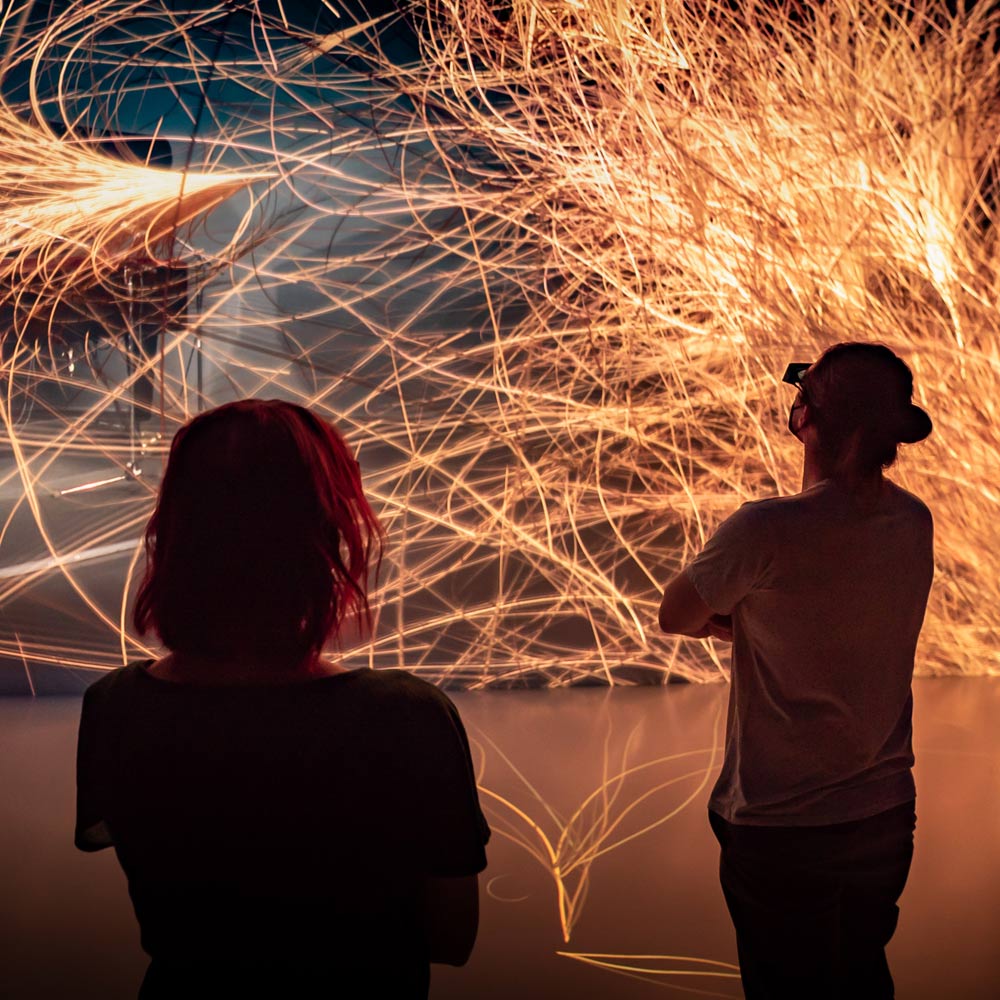
Inside Futurelab: The Impact We Want to Create
Alexandre Bizri (FR), Denise Hirtenfelder (AT), Maria Pfeifer (AT), Yoko Shimizu (JP), Yitong Tseo (US), Anna Weiss (DE/AT)
How does the Ars Electronica Futurelab define its own future impact—and how do we make it tangible to our audiences, partners, and ourselves? Be part of the conversation with members of the Futurelab team.
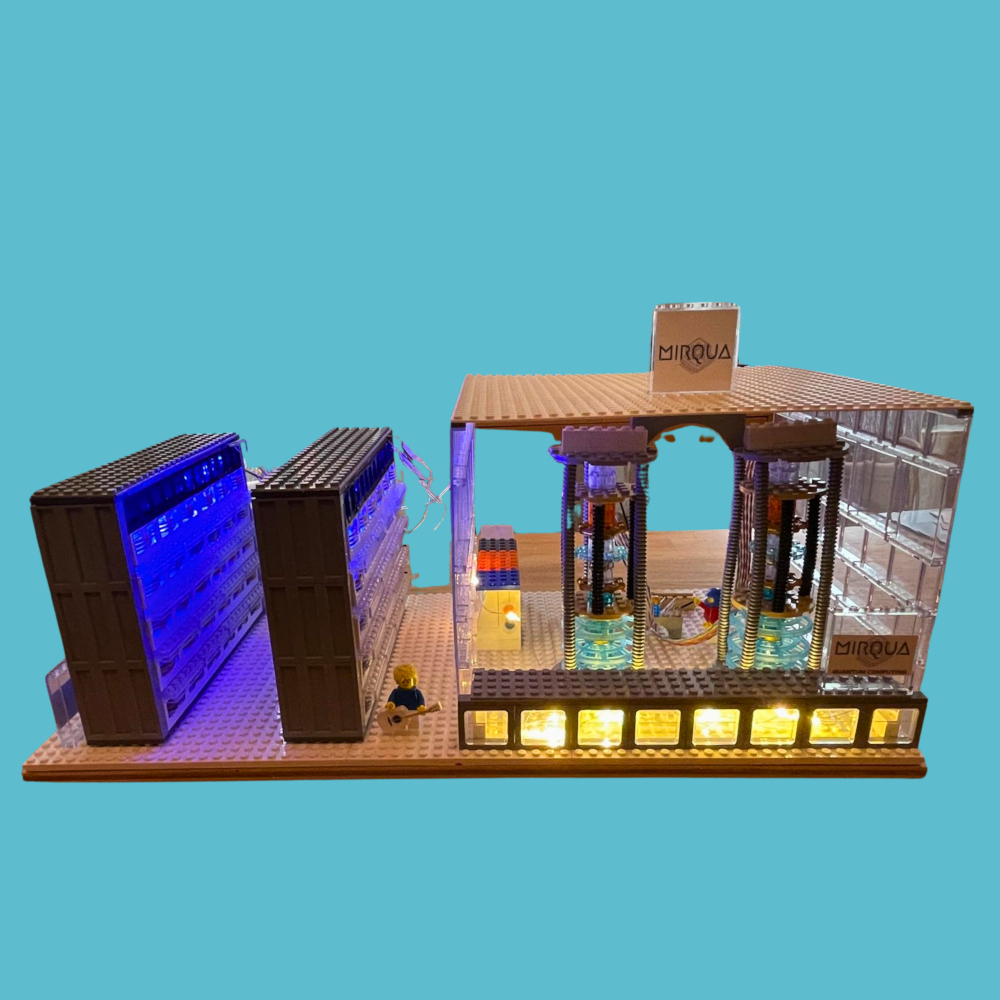
Introduction to Quantum Computing and Art
Arianna Crippa (IT), Yahui Chai (CN), Omar Costa Hamido (PT), Paulo Itaborai (BR), Karl Jansen (DE), Heike Riel (DE)
This lecture covers scientific and computational details of the implementations of quantum computing algorithms for music and art.
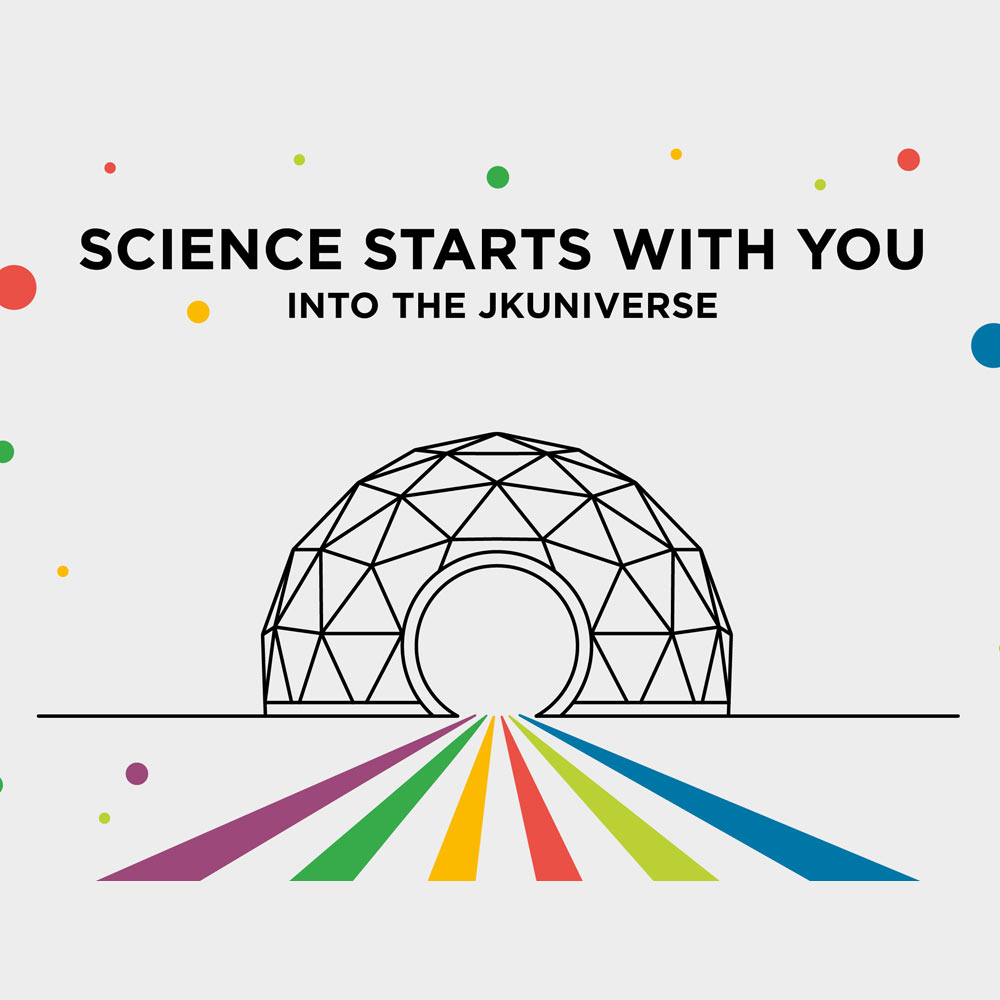
Kepler Salon Extra Extern
Gregor Pechmann (AT), Cornelia Lehner (AT), Veronika Liebl (AT), Eugénie Desmedt (AT), Andreas Kaindlstorfer (AT), Joaquin Santuber (CL)
Do we actually need a little more panic? Experts from Johannes Kepler University and Ars Electronica explore this question at the Kepler Salon, sharing their personal motivations and what we can learn from them. Afterwards, guests are invited to join a guided tour through the JKU area at the POSTCITY.
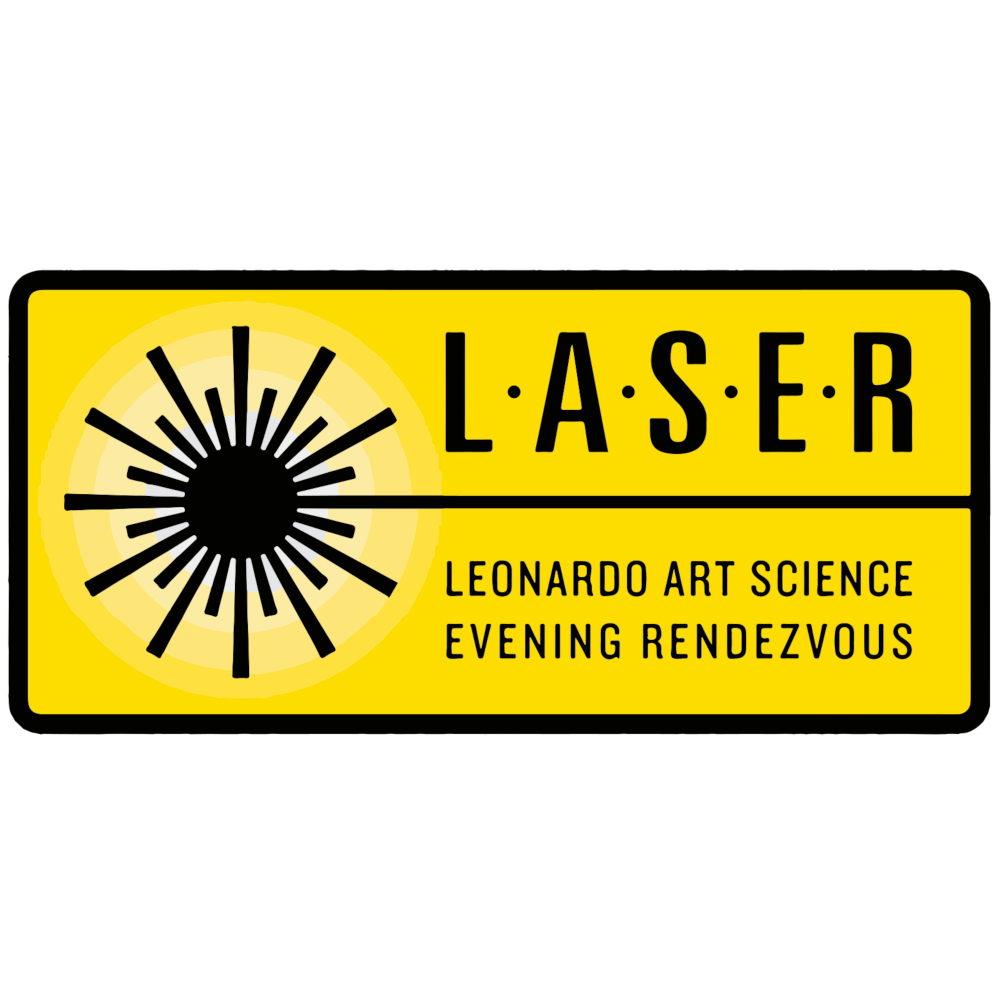
Leonardo LASER Talks Linz
Sarah Kolb (AT), Magdalena Breitwieser (AT), Jitka Effenberger (AT), Julia Moser (AT), Noor Stenfert Kroese (NL), Fabricio Lamoncha (ES)
This Leonardo LASER Talk event convenes artists and scientists working with mycelium and other living matter to present their research and open a dialogue on intersecting goals, infrastructural needs, shared and diverging agendas. Together, we will explore these laboratories as heterotopic spaces, capable of generating new collective practices and futures.
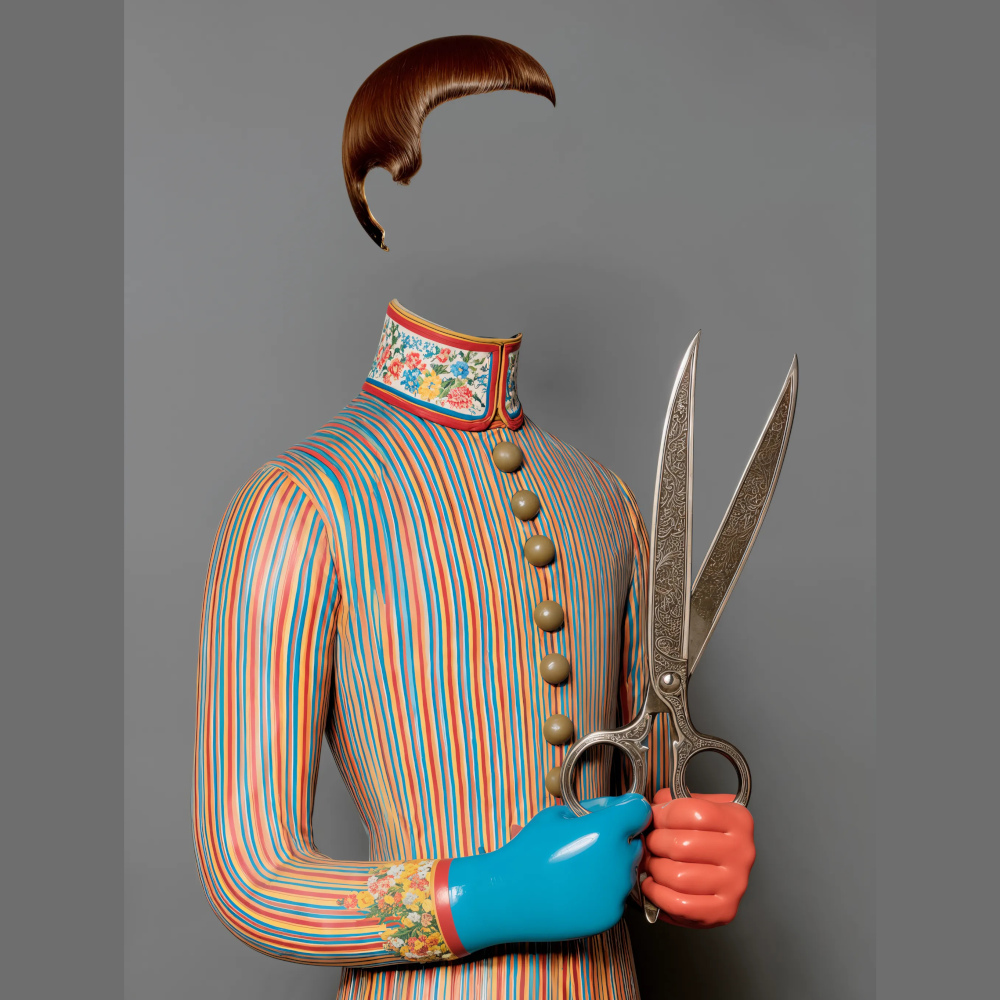
Me, Myself, and AI
David Szauder (HU)
Creative partner or tool? Opportunity or panic? And I could go on asking many more questions. I don’t have the answers—but I’m happy to show how I personally arrived at using Artificial Intelligence as a tool, and why I believe it’s important to integrate it into my creative practice.

NeXus Forum: Real-world Applications of Collaborative XR Environments
Dai Nippon Printing (JP), Ars Electronica Futurelab (AT)
This forum brings together various experts to discuss how the NeXus Print platform and collaborative XR can shape future experiences, daily life, industries, and society.
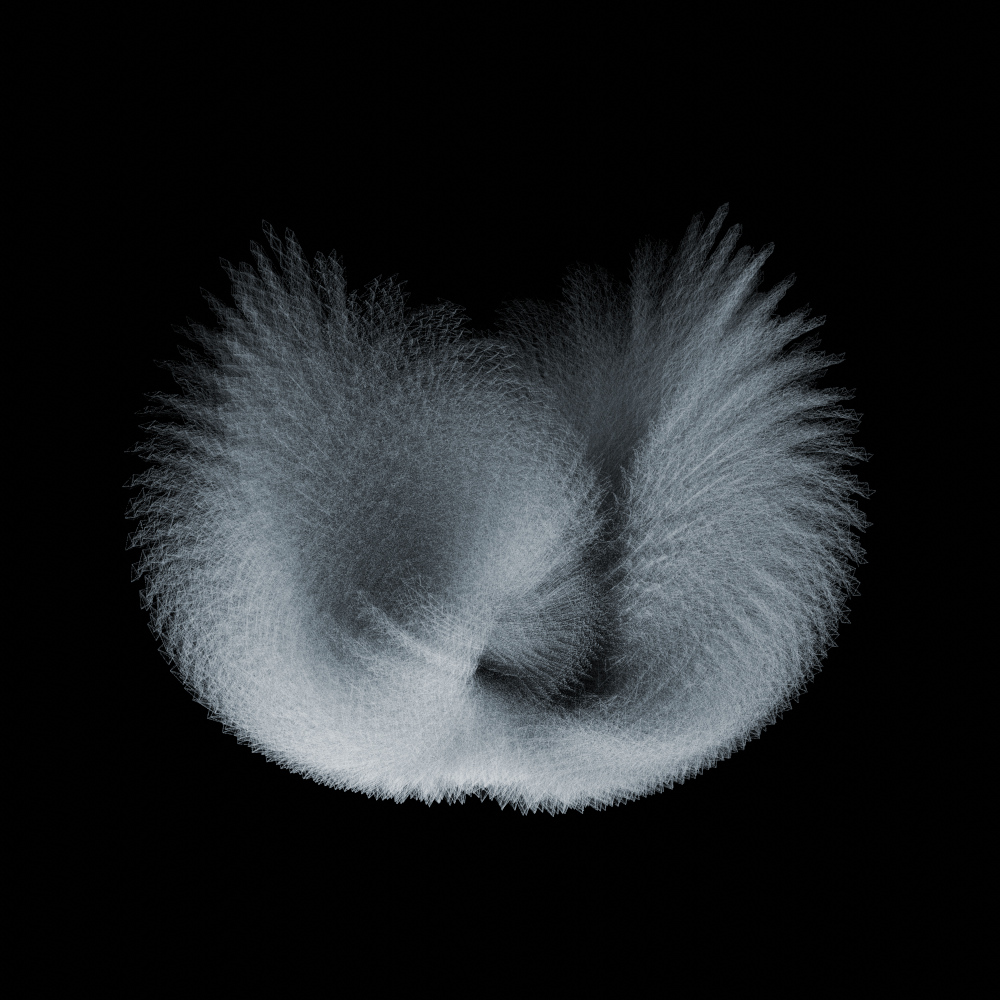
On Oribotics
Matthew Gardiner (AU/AT), Luca Zimmermann (CH), Kanata Warisaya (JP), Hiroki Minami (JP)
Join us for an informal talk and discussion around the oribotic (origami robotic) works in the Open Futurelab. Here you can meet the artists and collaborators and hear their perspectives first-hand, and of course, ask your own questions.
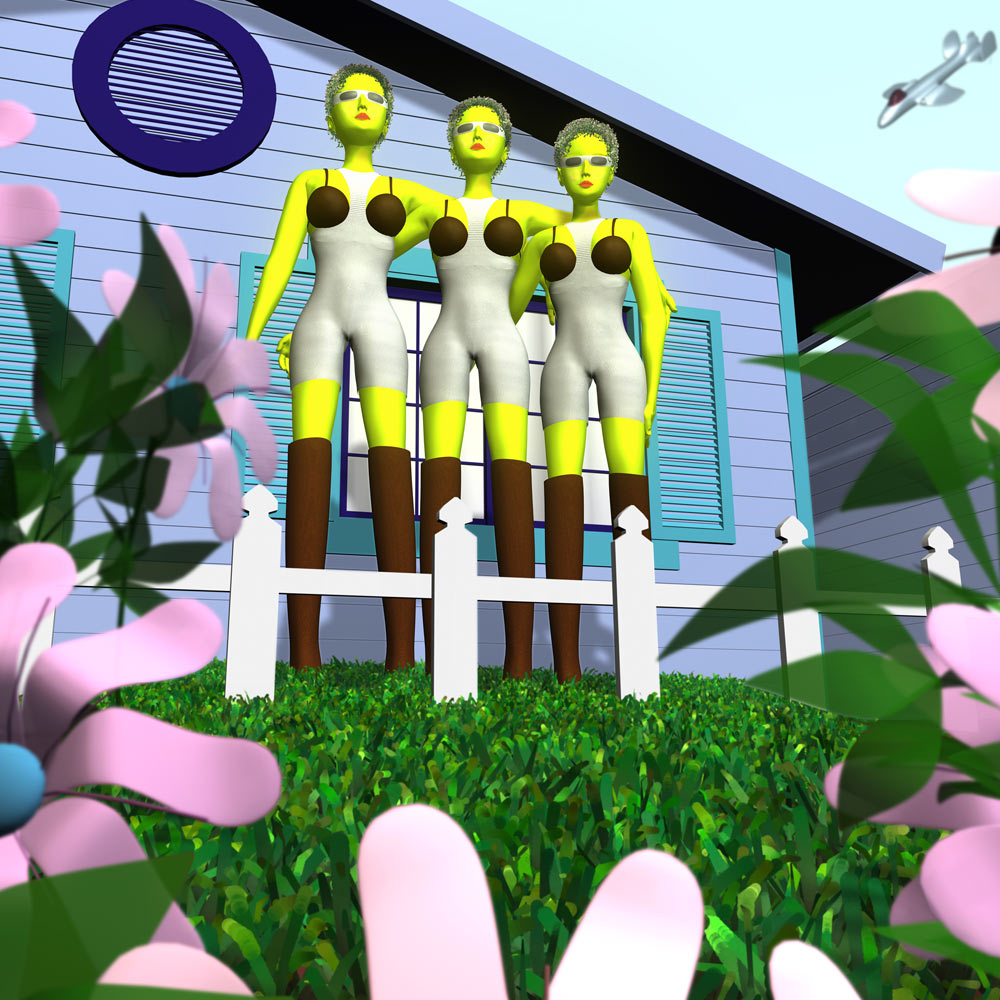
Radical Optimism? Cyberfeminism Then and Now
Julianne Pierce (AU), Claudia Hart (US), Malpractice (AT), Anika Meier (DE)
This panel brings together cyberfeminism pioneer Julianne Pierce of VNS Matrix, artist and researcher Claudia Hart, and the artist collective Malpractice to reflect on how cyberfeminist thinking has shifted in response to today’s technological realities.

Transforming Medicine through AI and Art
Patricia Stark (AT)
Bold visions for the future of medicine: Teams coming from different disciplines such as art, AI, and research present the results of a three-day hackathon tackling real-world medical challenges.